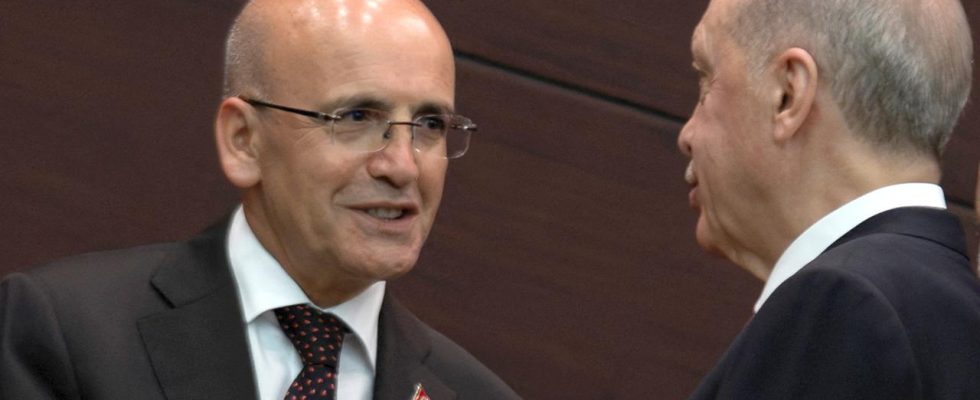portrait
Mehmet Simsek will become finance minister in the new government of Turkish President Recep Tayyip Erdogan. The main task is likely to be the fight against high inflation. But this is precisely where a conflict with Erdogan is looming.
Mehmet Simsek is something of a revenant, or rather a returnee to politics. Until the summer of 2018, he was first economics minister, then finance minister, and finally deputy prime minister. One who sometimes contradicts President Erdogan.
Now, after a five-year break, Mehmet Simsek is back. The spokesman for Erdogan’s ruling AKP party, Ömer Celik, is pleased about this: “Mehmet is a trusted, valuable friend from the center of our party. We worked together in the government and in parliament. He now wants to make his contribution.”
Simsek comes from a humble background
His contribution to the government could be an important one. The Turkish treasury is empty and inflation is high. And Simsek knows something about financial and economic policy. He himself grew up in poor conditions, was born in 1967 as the youngest of nine children of Kurdish smallholders in south-eastern Turkey. His first language was Kurdish. He first learned Turkish in elementary school.
Young Mehmet later had to walk twelve kilometers to secondary school, day after day. He studied economics in Ankara, then finance in England in his early 20s. He later made a career as an investment banker and took on British citizenship in addition to Turkish citizenship.
Simsek seems particularly suited to being reappointed to the Turkish government. But not everyone is enthusiastic. Stock market analyst Tunc Satiroglu complains: “Yes, Mehmet Simsek has a good reputation and yes, he is an experienced economist, speaks very good English. That’s all well and good. But is there anyone else within the governing AKP party who understands anything about economic management ?”
Critics complain about symbolic politics
Satiroglu wonders why Simsek is being pushed to the fore. There are also other respected economists and finance professionals. Satiroglu suspects symbolic politics behind the fact that Simsek should be part of the new government. It will be put in a shop window, so to speak, so that confidence in the financial markets grows.
Simsek himself does not speak publicly before his inauguration. When he commented on Turkey’s economic and financial policy years ago, he sounded like an agent of Erdogan – nothing more: “The opportunity to take over a government office under the direction of the president and to be able to implement his plans for five years will make the Turkish economy sustainable very positively,” said Simsek at the time.
Conflict in interest rate policy is looming
That his mere appointment is now enough for a “positive influence” is unlikely. He must act, such as ending Erdogan’s unorthodox interest rate policy. Contrary to the prevailing international opinion, the President preached: High interest rates create inflation, low ones fight it.
Analyst Satiroglu believes that Simsek will not be able to avoid this. He predicts Simsek’s failure: “He will hardly be allowed to go back to orthodox economics and raise the key interest rate, first to the usual 30 percent – and then higher because of inflation.”
“Customary” because only the key interest rate of the Turkish central bank is currently low at 8.5 percent. In fact, commercial banks charge a lot more – if you get a loan at all. Incidentally, Satiroglu believes, the problems of the economy cannot be solved by raising the key interest rate alone. But Mehmet Simsek will know that too.

